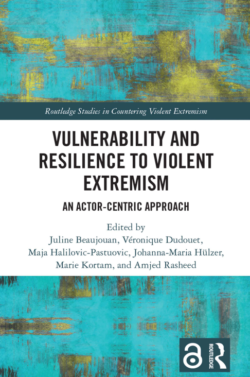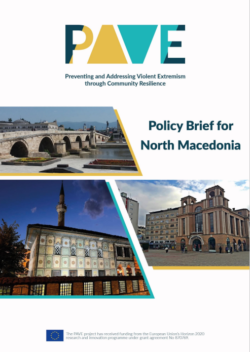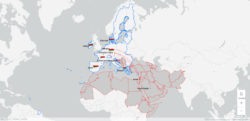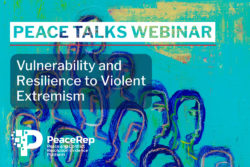The South – East Europe Programme of ELIAMEP participates to the new EU research project PAVE (Preventing and Addressing Violent Extremism through Community Resilience in the Balkans and MENA). PAVE aims to tackle the global issue of radicalisation by examining its root causes and driving factors. Based on a comparative assessment of local communities with features of vulnerability or resilience to violent extremism across seven case study countries, the 13 international partner institutions will develop concrete policy proposals to inform citizens and stakeholders within and beyond the regions under study.
In the light of an increase in radicalism and violent extremism in Europe and worldwide, there is a growing need for a common political strategy and effective prevention measures. It seems especially relevant to look into the local, regional and national contexts and transnational dynamics of violent extremism in Europe and its close neighbourhood and to draw concrete lessons learnt for the EU’s Common Security and Defence Policy and the expanding scope of external engagement.
Based on a participatory and inter-regional approach, the new research project PAVE has set out to advance evidence-based knowledge on violent extremism in the broader Middle East and North Africa (MENA) region and the Western Balkans, and to strengthen the capacity of policy-makers and community leaders for an effective prevention strategy between the European Union and its neighbourhood. The research endeavour will encompass empirical studies in selected municipalities of four Balkan countries (Bosnia and Herzegovina, Kosovo, North Macedonia, Serbia) and three MENA countries (Tunisia, Lebanon, Iraq) conducting comprehensive analysis of the similarities and differences between the regions and what might account for them. A particular focus will be on the assessment of existing preventive initiatives and measures to enhance community resilience in the following four thematic areas:
1) The interface between religious, political, and ethnic/sectarian extremisms.
2) The interaction between religious and state institutions.
3) On- and offline narratives and (de-)radicalisation.
4) Transnational interactions, including impact on and from Europe.
Within the three-year project lifetime, the interdisciplinary research team will develop innovative training tools and guidelines to support agents of community resilience (including religious leaders, mayors, educators, civil society organisations, women and youth), and will support mutual learning on best practices engaging stakeholders, community leaders, policy-makers and the wider public in the EU, MENA and Balkans.
ELIAMEP will especially work on the development of a risk map and of a toolkit, as well as lead the analysis and comparisons on cross-regional vulnerability and resilience factors to violent extremism. Moreover, ELIAMEP will be co-leading fieldwork in Kosovo and North Macedonia with Kossovar Centre for Security Studies, and will be conducting fieldwork on cumulative extremisms and on online and offline (de-) radicalization. Finally, the ELIAMEP team will also help to develop the concept and methodology of the project.
Τhe research team of South-East Europe Programme (ELIAMEP) designed an interactive risk map in the context of the European research project “PAVE” (Preventing & Addressing Violent Extremism). The risk map visualises in a dual way the transnational risk and resilient factors. The risk factors (i.e. disintegration, identity crisis, vulnerability to propaganda etc.) and the resilience factors (i.e. integration, the role of credible voices, social media, education, inter- cultural dialogue etc.) with a dedicated signal representing them are the main parts of the map. Furthemore, the primary using connecting lines is representing the main transnational implications. The information of the map is based on the outcomes of the field research within W.P. 6.
Project partners:
- Berghof Foundation Operations gGmbH
- Fondation Maison des Sciences de l’Homme
- University of Sarajevo
- Kosovar Centre for Security Studies
- Uppsala University
- American University of Beirut
- Hellenic Foundation for European and Foreign Policy
- Fundación Euroárabe de Altos Estudios
- Sfax University
- Trinity College Dublin
- Finn Church Aid
- EURICE – European Research and Project Office GmbH
- Open Think Tank
For more information, you may visit the programme’s website: https://www.pave-project.eu/.
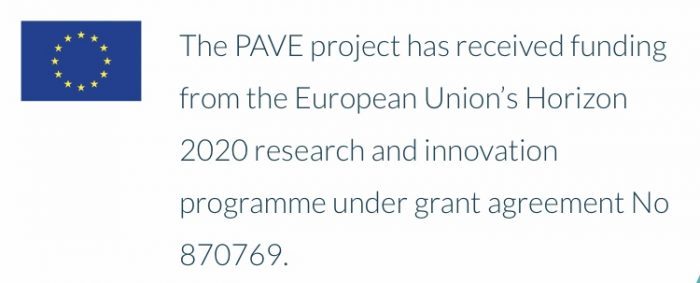
News & Media
PAVE Western Balkans Cross-Thematic Meeting in Belgrade, 29 October 2021
PAVE 2nd Progress and General Assembly Meeting in Paris, 22 February 2022
Bledar Feta on Thessaloniki’s DION TV, 16 May 2022.
Presentation of the H2020 PAVE Project’s fieldwork findings to the trainees of the Council of the EU – Bledar Feta, 27 May 2022.













